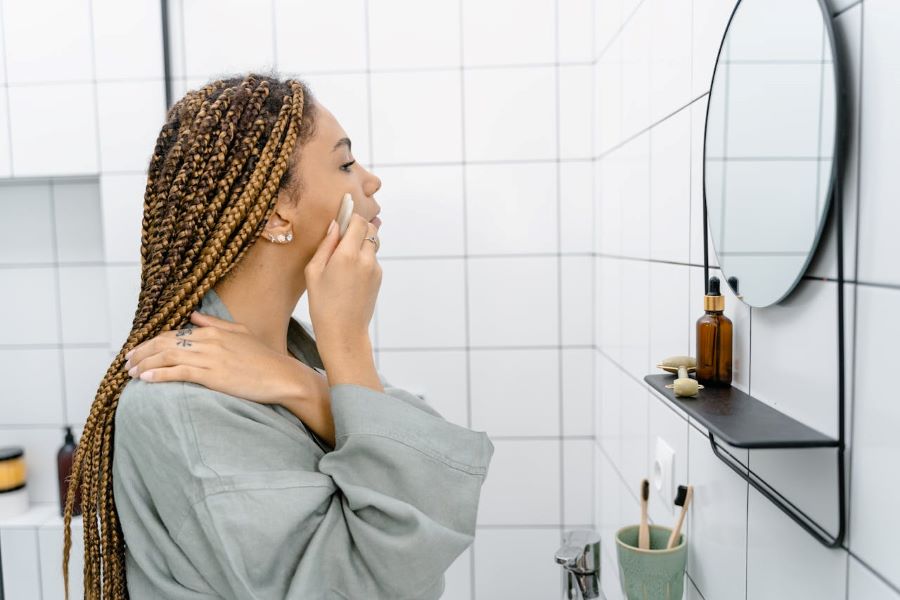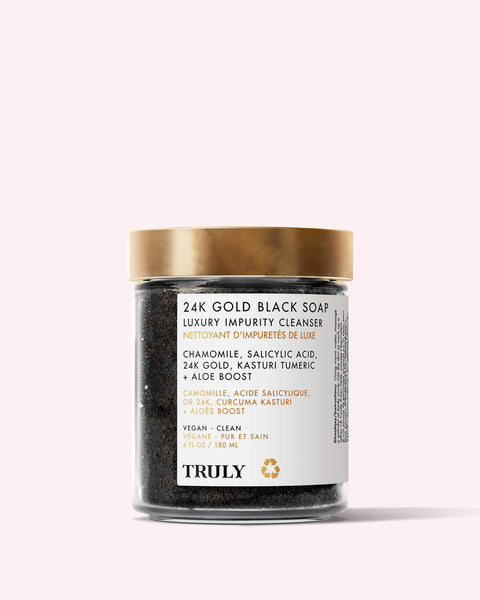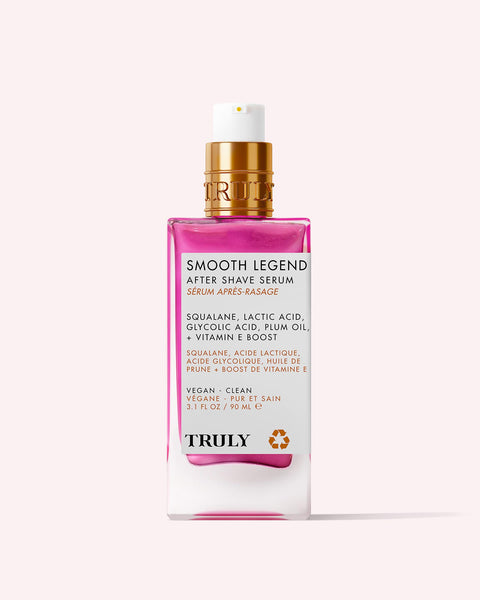How to Treat Dry Spots on Face During Pregnancy

Dry spots on face during pregnancy is more common than you think. So, how can you treat dry skin during pregnancy?
We’ve created a complete guide on what causes dryness during pregnancy and what you can do about it along with the best skincare products to get your dewy glow back.
What Causes Dry Spots on Face During Pregnancy?
Dry skin on face during pregnancy is typically caused by hormonal changes that strip the skin of moisture and ultimately elasticity.
Sebum, the natural oil that hydrates your skin, is inhibited by high levels of estrogen that’s common during pregnancy. It can start as early as the first trimester or second trimester and last throughout pregnancy.
Here are the most common causes of dry skin during pregnancy.
• Body Fluid Increase: During pregnancy, your body requires extra blood and water to support your growing baby. This heightened demand often pulls moisture from your skin, making it harder to retain hydration—especially in areas like your face, arms, and feet.
• Increased Water Needs: Pregnancy significantly boosts your water requirements. If you’re not drinking enough, your skin may become dry as a result of dehydration.
• Reduced Elasticity: As your body expands to accommodate your baby, your skin stretches, reducing its elasticity and moisture levels. This can sometimes result in dryness or cracking in pregnant women.
• Seasonal Factors: Winter pregnancies can exacerbate dry, itchy skin due to cold air, low humidity, and indoor heating—all of which strip your skin of essential moisture. However, these skin changes happen whether or not you’re pregnant.
How to Treat Dry Spots on Face During Pregnancy
If you’re dealing with dry patches during pregnancy, the way to combat it is with products that lock in moisture. Besides alleviating dry skin problems, it will help give you a healthy pregnancy glow. Here’s how to get rid of dry spots on face when pregnant.
#1: Switch to a Hydrating Cleanser
Since you cleanse every day, you want to make sure you’re using a cleanser that removes impurities without stripping your skin of its natural, protective oils.
Opt for a cleansing balm or cream that gently melts away dirt, excess oil, and makeup while keeping your moisture barrier intact. In addition to alleviating dryness, it will also prevent red bumps and itchy skin.
A great choice is Truly’s Glass Skin Cleansing Balm. A gentle, fragrance-free cleanser with jojoba oil, aloe vera, and niacinamide to deep clean your skin while sealing in moisture for hours of dewy, soft skin.
#2: Moisturize
One of the best ways to combat dry spots on face during pregnancy is with a daily moisturizer. Look for a product enriched with hydrating ingredients like hyaluronic acid, coconut oil, shea butter, and vitamin E.
A good moisturizer will help alleviate dry, itchy bumps and skin, leaving you smooth, supple, and luminous. For best results, apply it twice a day—morning and night.
For mega moisture, try Truly’s Glazed Donut Facial Glow Cream. It gives your skin an instant burst of hydration with a power packed blend of coconut, passion fruit, shea butter, and vitamin E. It’s incredibly rich and luxurious but melts fast into the skin for a day-long dewy glow.
#3: Exfoliate
For those stubborn dry patches on skin during pregnancy, buff them away with a gentle exfoliator. By removing dead skin cells, skin feels immediately softer and smoother.
Plus, products work better when applied to freshly buffed skin. That’s because there’s no dead cells there to block absorption of your fave skincare products.
We recommend Truly’s 24K Gold Black Soap Cleanser. Its key ingredient—salicylic acid—gently breaks up dead cells on the skin’s surface to smooth away dry spots and textural issues. It’s also infused with soothing chamomile, brightening turmeric, and elasticity-restoring 24k gold to give you a youthful, radiant glow.
#4: Drink Plenty of Water
It’s important to stay hydrated when you’re pregnant. Pregnant women should aim to drink around 1.6 litres of water each day. Drinking water is even more vital during the third trimester because you can easily become dehydrated then.
During the third trimester, you’re likely to experience swelling because your body is harboring extra sodium or because you get too hot. Drinking plenty of water cleanses your body of sodium, while keeping your body’s core temperature down. This in turn prevents dehydration.
#5: Wash with Lukewarm Water
To prevent dry spots on face during pregnancy dermatologists also recommend using lukewarm water instead of hot water or cold water. Extreme temperatures can weaken your skin’s barrier and steal moisture from your skin.
Especially if you have sensitive skin, you’ll notice how dry, red, and itchy your skin looks when you cleanse or shower using hot or cold water. It can also exacerbate existing skin conditions like eczema.
Once you’re done, finish your shower with a hydrating lotion or butter like Truly’s Unicorn Fruit Whipped Body Butter. It’s packed full of nourishing antioxidants and botanical moisturizers to leave you soft, smooth, and scrumptious.
#6: Use Sun Protection
Throughout your pregnancy, use a pregnancy-safe sunscreen with SPF 30 or higher to keep your skin protected from harmful UV rays.
Hormonal shifts can trigger melasma, also known as the “mask of pregnancy,” a common type of pigmentation that appears as dark patches on the face, particularly on the cheeks, forehead, and upper lip. Exposure to UV rays can worsen these pigmentation issues, making them more prominent and harder to fade post-pregnancy.
#7: Try a Humidifier
Dry air, especially during colder months, can strip your skin of moisture and exacerbate pregnancy-related dryness. Using a humidifier in your bedroom or living space helps maintain optimal air moisture levels, which keeps your skin hydrated and prevents issues like cracking or flaking.
Humidifiers can also soothe respiratory discomfort and promote better sleep, which are essential for both you and your growing baby. Pair this with regular moisturizing to lock in hydration for soft, supple skin throughout your pregnancy.
Pregnancy brings about numerous skin changes due to hormonal shifts, increased blood flow, and weight gain. Some of the most common include stretch marks, linea nigra, and conditions like plaques of pregnancy or pruritic urticarial papules and plaques (PUPPP).
These changes can cause itching, lesions, and discomfort, but they’re typically harmless. For issues like pigmentation or itching, over-the-counter creams and moisturizers may help, but consult your ob/gyn, dermatologist or healthcare provider to ensure treatments are pregnancy-safe.
Incorporating preventative care, like staying hydrated, moisturizing regularly, and using sunscreen, can also prevent dry spots on face during pregnancy.
Feature Photo by Tima Miroshnichenko, Pexels














